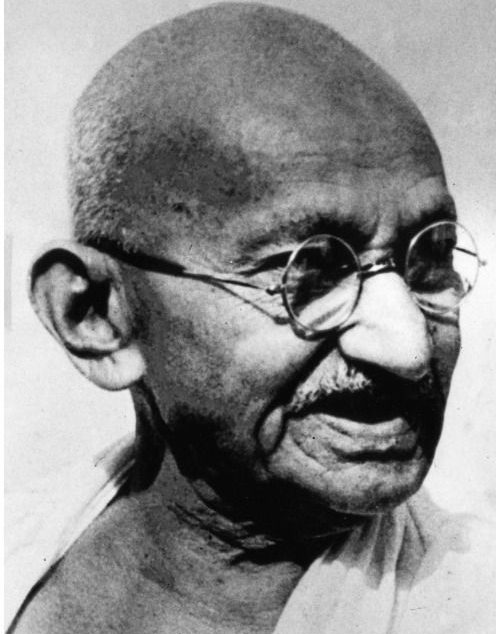Mahatma Gandhi: The Father of the Indian Nation
Mahatma Gandhi, born Mohandas Karamchand Gandhi on October 2, 1869, in Porbandar, India, was a towering figure in the global struggle for independence and a pioneer of nonviolent civil disobedience. Revered as the “Father of the Nation” in India, Gandhi’s teachings on peace, truth, and nonviolence continue to inspire movements for justice and equality worldwide. This article explores the life, philosophy, and enduring impact of Mahatma Gandhi.
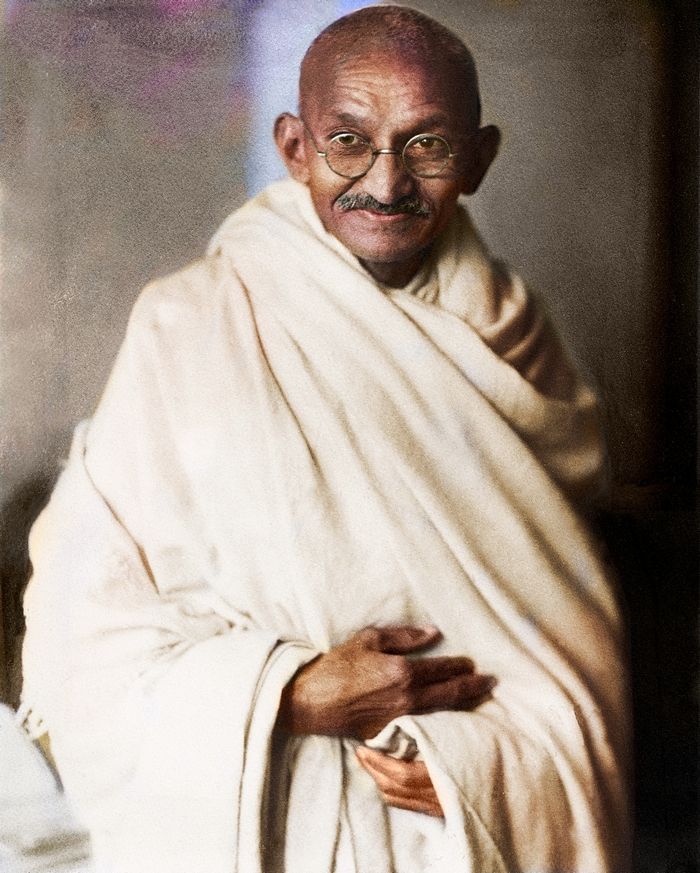
Early Life and Education
Childhood and Upbringing
Gandhi was born into a devout Hindu family, and his upbringing instilled a strong sense of morality and compassion. His father served as the Diwan of Porbandar, and the family’s values emphasized simplicity, honesty, and service to others.
Education in England
At the age of 19, Gandhi traveled to England to study law at the Inner Temple. His time in London exposed him to Western philosophies and cultures, laying the foundation for his future role as a bridge between East and West.
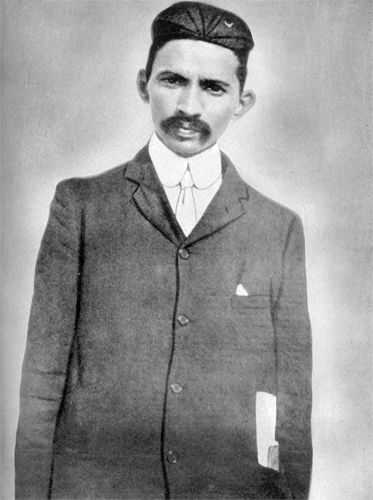
“Be the change that you wish to see in the world.”
– Mahatma Gandhi
Activism in South Africa
Civil Rights Activism
Gandhi’s journey as a civil rights activist began in South Africa, where he worked as a lawyer. His experiences with racial discrimination and injustice fueled his commitment to fighting for the rights of Indians and other minority groups.
Philosophy of Satyagraha
In South Africa, Gandhi developed the concept of Satyagraha, a philosophy of nonviolent resistance. He believed that individuals could transform society through the pursuit of truth and nonviolent protest.
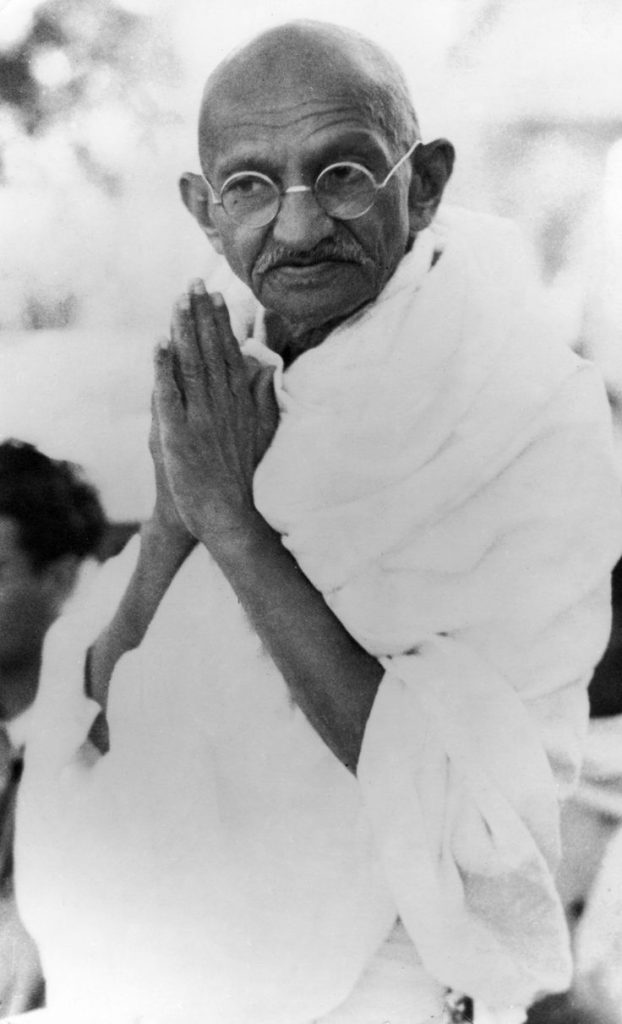
Return to India and Leadership in Independence Movement
Championing Nonviolent Resistance
Gandhi returned to India in 1915 and quickly emerged as a leader in the Indian National Congress. His philosophy of nonviolent resistance became the cornerstone of the Indian independence movement.
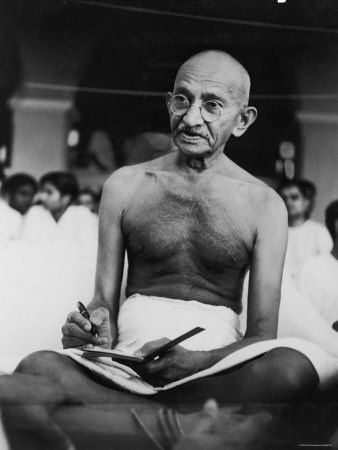
Salt March and Civil Disobedience
One of the most iconic moments in India’s struggle for independence was the Salt March in 1930. Gandhi led a 240-mile march to the Arabian Sea, where he and his followers defied the British salt monopoly by making their own salt. The act of civil disobedience garnered international attention.
“The best way to find yourself is to lose yourself in the service of others.”
– Mahatma Gandhi
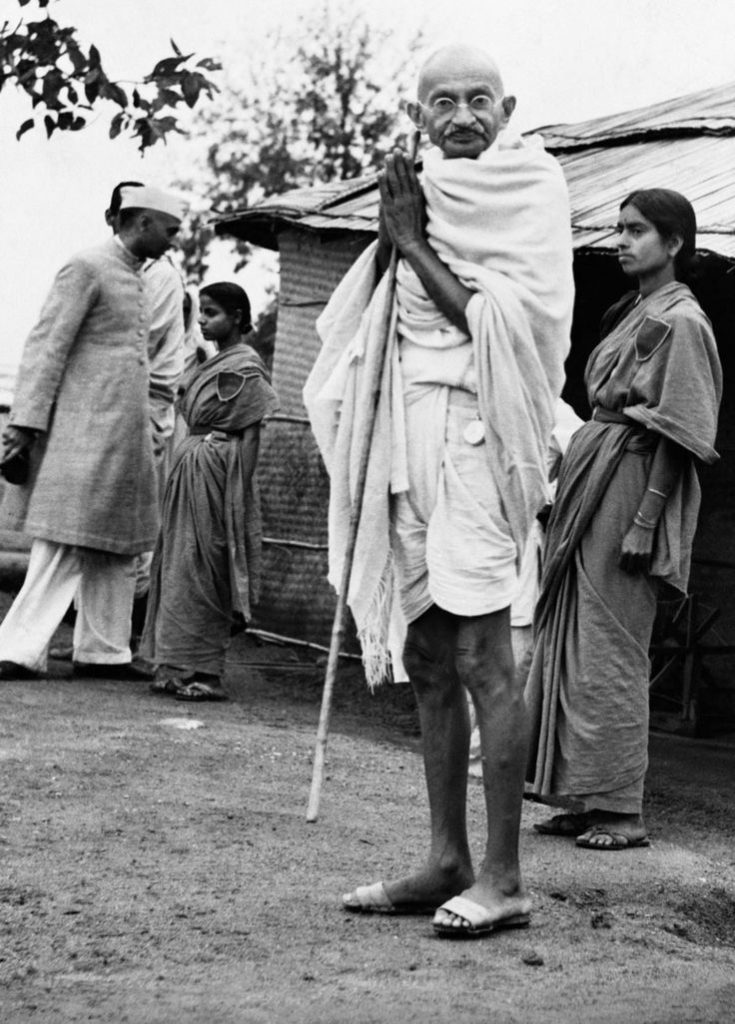
Partition of India and Assassination
End of British Rule
India gained independence from British rule on August 15, 1947. However, the joy of independence was overshadowed by the tragic partition of India and the communal violence that followed.
Assassination
On January 30, 1948, Mahatma Gandhi was assassinated by Nathuram Godse, a Hindu nationalist who opposed Gandhi’s stance on religious tolerance. The loss of Gandhi was a profound tragedy for the nation, and his legacy continued to shape India’s path forward.

Legacy and Global Influence
Global Symbol of Peace
Mahatma Gandhi’s legacy extends far beyond India. He became a global symbol of peace, inspiring civil rights leaders like Martin Luther King Jr. and Nelson Mandela. His principles of nonviolence and civil disobedience influenced movements for justice around the world.
International Day of Non-Violence
In 2007, the United Nations declared Gandhi’s birthday, October 2, as the International Day of Non-Violence. This day serves as a tribute to his enduring philosophy and commitment to nonviolent activism.
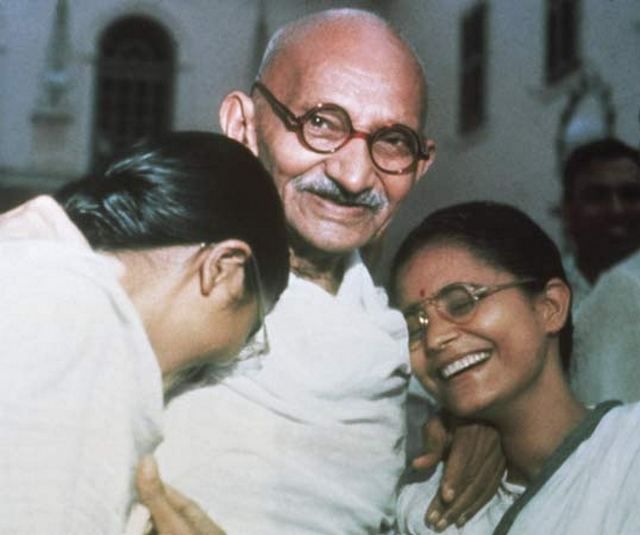
Table: Key Events in Mahatma Gandhi’s Life
| Year | Event |
|---|---|
| 1869 | Birth of Mohandas Karamchand Gandhi |
| 1893 | Gandhi travels to South Africa |
| 1915 | Gandhi returns to India and joins the Indian National Congress |
| 1930 | Salt March, a significant act of civil disobedience |
| 1942 | Launch of Quit India Movement |
| 1947 | India gains independence from British rule |
| 1948 | Mahatma Gandhi is assassinated |

Conclusion
Mahatma Gandhi’s life was a testament to the power of nonviolence, truth, and the pursuit of justice. His teachings continue to guide generations in their quest for a more just and compassionate world. As we reflect on the legacy of this extraordinary leader, let us carry forward the principles of peace and equality that Mahatma Gandhi so passionately advocated.
Frequently Asked Questions (FAQs)
Q1: Who was Mahatma Gandhi?
A1: Mahatma Gandhi, born Mohandas Karamchand Gandhi, was a prominent leader in the Indian independence movement against British rule. He is widely known for his philosophy of nonviolent resistance, or Satyagraha, and played a pivotal role in India gaining independence in 1947.
Q2: What is Satyagraha?
A2: Satyagraha is a term coined by Gandhi, combining the Sanskrit words “satya” (truth) and “agraha” (insistence). It refers to the philosophy of nonviolent resistance or civil disobedience as a means to achieve social or political change.
Q3: What was the Salt March?
A3: The Salt March, also known as the Dandi March, was a nonviolent protest led by Gandhi in 1930. It involved a 240-mile march to the Arabian Sea, where Gandhi and his followers defied British salt taxes by producing their own salt. The march was a symbolic act of civil disobedience against British rule.
Q4: How did Gandhi contribute to India’s independence?
A4: Gandhi played a crucial role in India’s independence by advocating nonviolent resistance and civil disobedience. His leadership in movements like the Salt March and Quit India Movement, coupled with his commitment to nonviolence, contributed significantly to India gaining independence in 1947.
Q5: What is the International Day of Non-Violence?
A5: The International Day of Non-Violence is observed on October 2nd, the birthday of Mahatma Gandhi. It was declared by the United Nations in 2007 to honor Gandhi’s philosophy of nonviolence and his contributions to promoting peace and justice worldwide.
Q6: How did Gandhi’s principles influence other movements?
A6: Gandhi’s principles of nonviolence and civil disobedience had a profound impact on various movements for justice and civil rights globally. Leaders like Martin Luther King Jr. in the United States and Nelson Mandela in South Africa drew inspiration from Gandhi’s philosophy in their quests for equality and freedom.
Q7: What led to Gandhi’s assassination?
A7: Mahatma Gandhi was assassinated on January 30, 1948, by Nathuram Godse, a Hindu nationalist who opposed Gandhi’s stance on religious tolerance and the partition of India. The assassination was a tragic event that shook the nation.
Q8: What is Gandhi’s legacy today?
A8: Gandhi’s legacy endures as a symbol of peace, truth, and nonviolent resistance. His teachings continue to inspire movements for justice and equality globally. Gandhi’s emphasis on simplicity, compassion, and the pursuit of truth remains relevant in the modern world.
Q9: Did Gandhi hold any political positions in independent India?
A9: Despite being a central figure in the Indian independence movement, Gandhi did not hold any political positions in independent India. He focused on promoting communal harmony, advocating for the upliftment of the untouchables, and fostering a culture of nonviolence.
Q10: How is Gandhi remembered in India today?
A10: Mahatma Gandhi is known as the “Father of the Nation” in India. His legacy is remembered with statues and institutions. Events such as Martyrs’ Day on January 30th also honor him. This day marks the anniversary of his assassination. Gandhi’s values still influence India’s moral and ethical principles.

